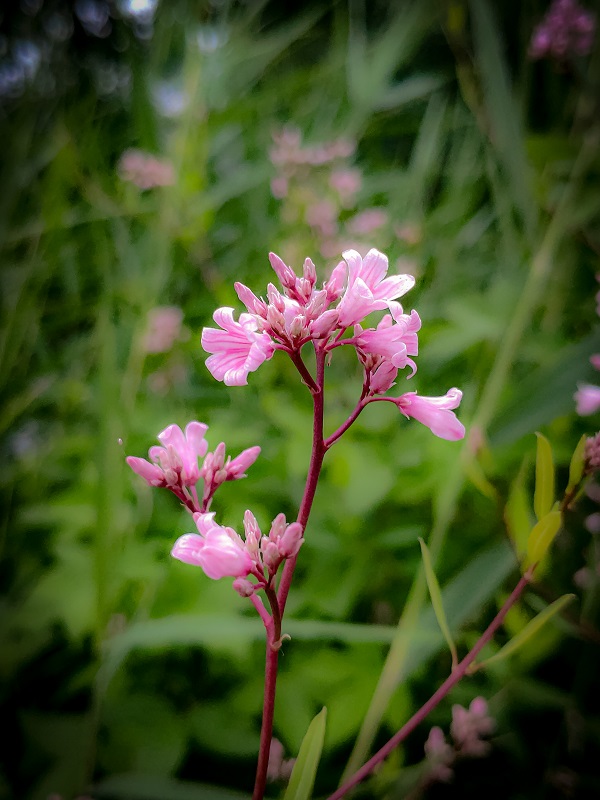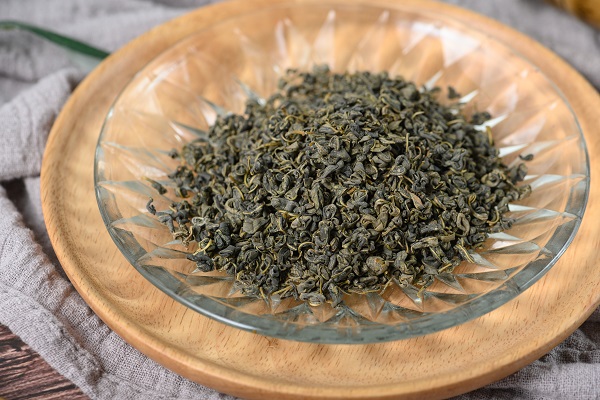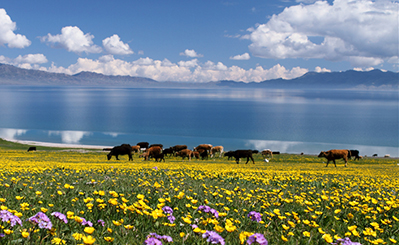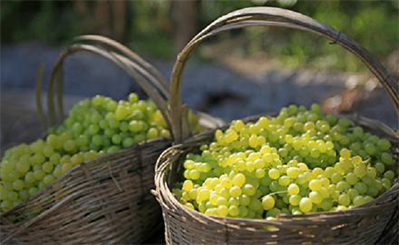Desert pink flowers in Xinjiang enhance ecology and economy
Yuli county, located on the northern edge of the Taklimakan Desert in Xinjiang Uygur autonomous region, is currently experiencing the breathtaking beauty of 1.6 million mu (106,666 hectares) of apocynum, also known as Lop hemp. The vast expanse of apocynum is currently adorned with delicate pink flowers that resemble hanging bells, forming a magnificent "pink flower sea" that gracefully sways in the wind. Beyond its visual allure, this floral paradise also contributes significantly to enhancing the region's ecological environment while generating economic value.

The name "Lop hemp" originates from its discovery in the Lop Nor region, where the plain is ideal for spinning and weaving. [Photo/IC]
The name "Lop hemp" originates from its discovery in the Lop Nor region, where the plain is ideal for spinning and weaving. Wild apocynum predominantly thrives in saline-alkali wastelands, on desert fringes, riverbanks, alluvial plains, and around lakes and desolate dunes. Starting from mid to late June, Yuli county is blessed with the continuous bloom of wild apocynum until the end of July.
"Currently, we have 1.6 million mu of apocynum in Yuli county. Among them, 170,000 mu are in densely populated areas, with 140,000 mu being restored through artificial protection last year. This year, we have cultivated over 30,000 mu through artificial cultivation," said Alikemu Hasimu, deputy director of the Xinjiang Yuli County Forest Technology Promotion Center.
Yuli county has implemented an integrated protection and restoration project encompassing mountains, waters, forests, farmlands, lakes, grasslands, and sand. This comprehensive approach combines engineering sand fixation with the planting of apocynum to increase surface vegetation coverage, combat desertification, improve local climate conditions, and establish a robust ecological security barrier.

Apocynum is also made into tea, which is good for health. [Photo/IC]
Apocynum possesses natural qualities that make it drought-resistant, tolerant to salinity and alkali, as well as extreme heat and sandstorms. Through vegetative propagation, it aids in wind breaking and sand-fixation, thus preventing desert encroachment on oases to a certain extent. This year, the region has utilized drones for aerial seeding, experimenting with a 3,000-mu desert area.
Since 2021, Yuli county has been developing its apocynum industry by collaborating with scientific research institutions to overcome challenges associated with artificial cultivation and enhance the conservation of wild apocynum resources. Additionally, the local government has been exploring the ecological, economic, and social benefits of apocynum, attracting downstream industries interested in tea production, honey brewing, textile manufacturing, and medical applications to discuss potential cooperation. Ultimately, the goal is to transform apocynum into a thriving industry that benefits the local community.
 Attractions
Attractions Dining
Dining Culture
Culture